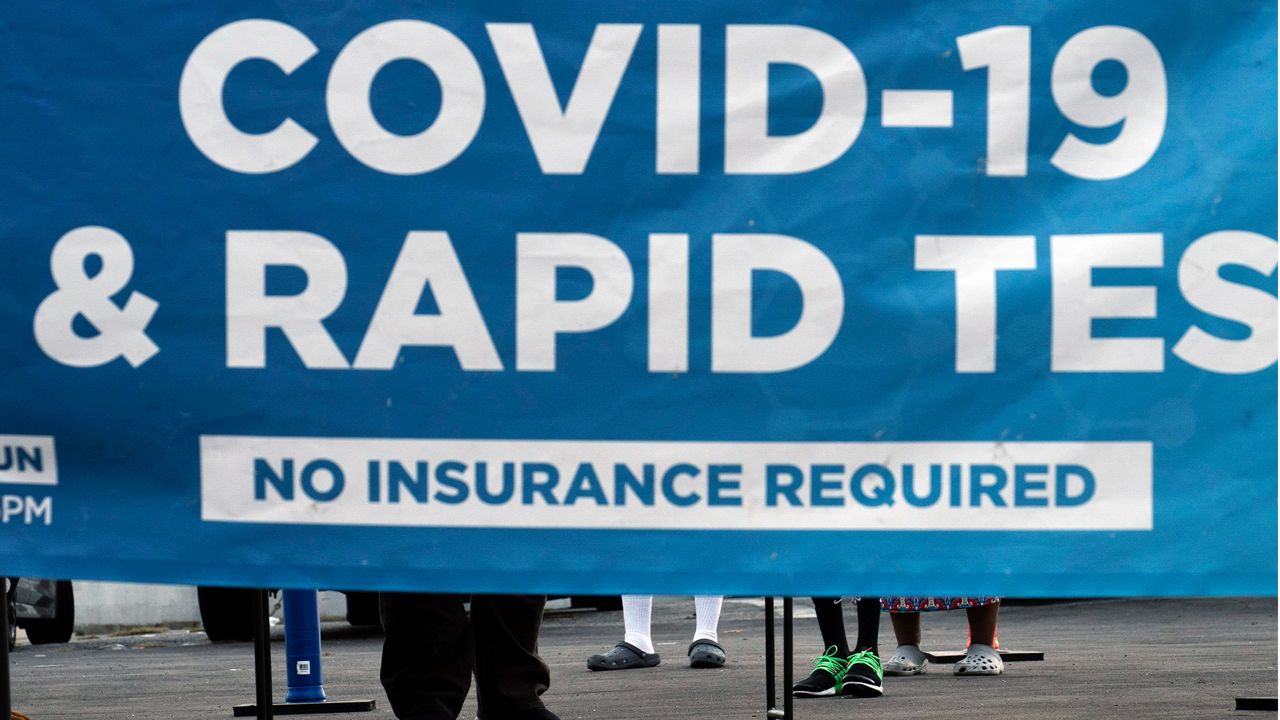LOS ANGELES — Los Angeles County reported nearly 10,000 new COVID-19 cases Friday, continuing a precipitous climb that the county's public health director warned could lead to record numbers of daily infections by the end of the year.
Fueled by the highly transmissible omicron variant of coronavirus, Friday's 9,988 new infections marked a 15.7% jump from Thursday's 8,633.
What You Need To Know
- The county on Friday reported another 21 COVID-19-related deaths, raising the cumulative total to 27,533
- The 9,988 new cases gave the county a pandemic total of 1,595,239
- According to the county, the average daily rate of people testing positive for the coronavirus rose to 15% as of Friday, more than triple the rate from a week ago
- Public Health Director Barbara Ferrer warned that if infections continue such a dramatic rise, the daily case number could top 20,000 by the end of the year, reaching the highest level of the pandemic
The county on Friday reported another 21 COVID-19-related deaths, raising the cumulative total to 27,533. The 9,988 new cases gave the county a pandemic total of 1,595,239.
According to the county, the average daily rate of people testing positive for the coronavirus rose to 15% as of Friday, more than triple the rate from a week ago.
Public Health Director Barbara Ferrer warned Wednesday that if infections continue such a dramatic rise, the daily case number could top 20,000 by the end of the year, reaching the highest level of the COVID-19 pandemic.
The number of county residents hospitalized with the virus grew to 850 on Friday, up from 801 on Thursday. The number of patients in intensive care was 181.
Ferrer has said hospitalization numbers have remained relatively stable, crediting COVID-19 vaccines for preventing infected people from becoming seriously ill. But deaths and hospitalizations are considered trailing indicators, so those numbers could still be in for a substantial spike in the coming weeks.
Ferrer said the vast majority of people being hospitalized due to the virus are unvaccinated, insisting that hospitalization numbers for vaccinated residents have remained low and flat since the shots became available. According to county figures, the hospitalization rate for unvaccinated people was 25 per 100,000 residents as of Wednesday, compared to just 1 per 100,000 for the vaccinated.
According to Ferrer, unvaccinated people are five times more likely to get infected with COVID-19, 21 times more likely to be hospitalized and 18 times more likely to die.
Ferrer said the county is not immediately considering a return to lockdown or other severe restrictions on public activity, but it will depend on the actions residents take to slow spread of the virus.
"I've always been transparent and honest that with a variant such as omicron and potentially other variants that could happen in the future, every single option has to be on the table," she said. "Every single tool we have has to be available for us to protect people's lives and livelihood and...avoid overwhelming the hospital system.
"... I think if we can all do this, all of us, every single person, commit to celebrating with as much safety as possible, which may mean you're changing up some of your plans, we're going to be OK," she said.
Meanwhile, the health department said Friday that it was expanding access to free COVID-19 testing amid greater demand around the holidays.
"Demand for COVID-19 testing is steadily increasing as county residents rush to get tested before gathering with loved ones and as a direct result of LA County's surge in new cases," officials said.
Effective Friday, the changes include:
- Extended hours of operation at sites across Los Angeles County
- Additional week and weekend dates
- Additional mobile testing units in hard-hit areas
- Re-launch of Holiday Home Test Collection Program with new guidelines to reach more people and make it easier to get tested. The link is at https://covid19.lacounty.gov/hometest.
Any county resident who is symptomatic or believes they were exposed to the coronavirus can order a home testing kit, which requires swab collection to be mailed back for a PCR test result.



